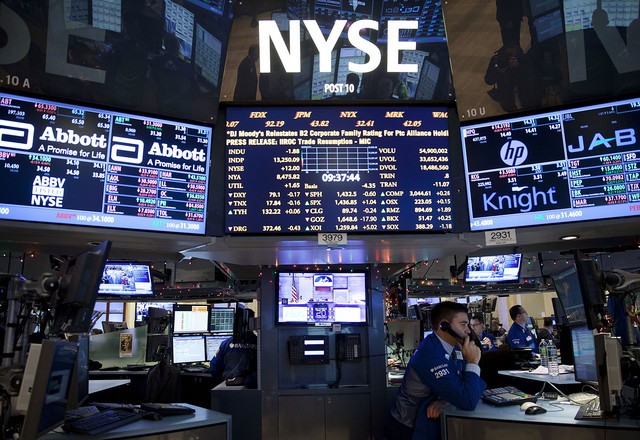NYSE Fined $14 Million by SEC for Series of Rule Violations

The New York Stock Exchange and its sister markets were fined $ 14 million by U.S. securities regulators for a series of infractions including missteps in dealing with a 3 1/2 hour trading halt in July 2015 and a wild trading session that roiled exchange-traded funds a month later.
The exchanges didn’t have proper rules in place, violated some they did have and in some cases broke the law, the Securities and Exchange Commission said in an order released Tuesday. The fine was as big as one imposed against another market in January 2015, a penalty the SEC said was the biggest ever against an exchange. The markets, all divisions of Intercontinental Exchange Inc., settled without admitting or denying the SEC’s findings.
“We believe this settlement is in the best interest of the NYSE Exchanges,” ICE said in a statement. “We take our regulatory obligations seriously and remain focused on building and maintaining industry-leading technology and ensuring that our markets operate with the utmost integrity.”
The July 2015 outage froze one of the world’s biggest financial markets. In the 47 minutes before the halt began, NYSE and NYSE American “experienced escalating connectivity problems” between their trading systems and computers customers use to access the exchanges. NYSE broke the law because it kept marking those stocks as having “automated” price quotes even though it “had reason to believe otherwise,” the SEC said.
ETFs, Hidden Liquidity
NYSE was also dinged for how its price collars worked on Aug. 24, 2015, when hundreds of ETFs were temporarily paused and many stocks swung wildly. On March 31, 2015, the NYSE Arca exchange erred when it halted 134 securities for about 20 minutes, according to the SEC. NYSE and NYSE American didn’t have adequate backup procedures in place for about a year after Regulation SCI — the SEC’s rules governing systems compliance and integrity — took effect in November 2015.
And the final violation: Two order types at NYSE and NYSE American interacted in a way from 2008 to 2015 that let floor brokers detect hidden liquidity at the exchange. Because that possibility wasn’t disclosed to customers, it broke U.S. securities laws.
These “order types could be used to sniff out orders, thereby leading to information leakage that favored floor brokers over other customers,” Tyler Gellasch, executive director of an investor advocacy group called the Healthy Markets Association, wrote in an email. “This is huge” in the context of private lawsuits, he added.



